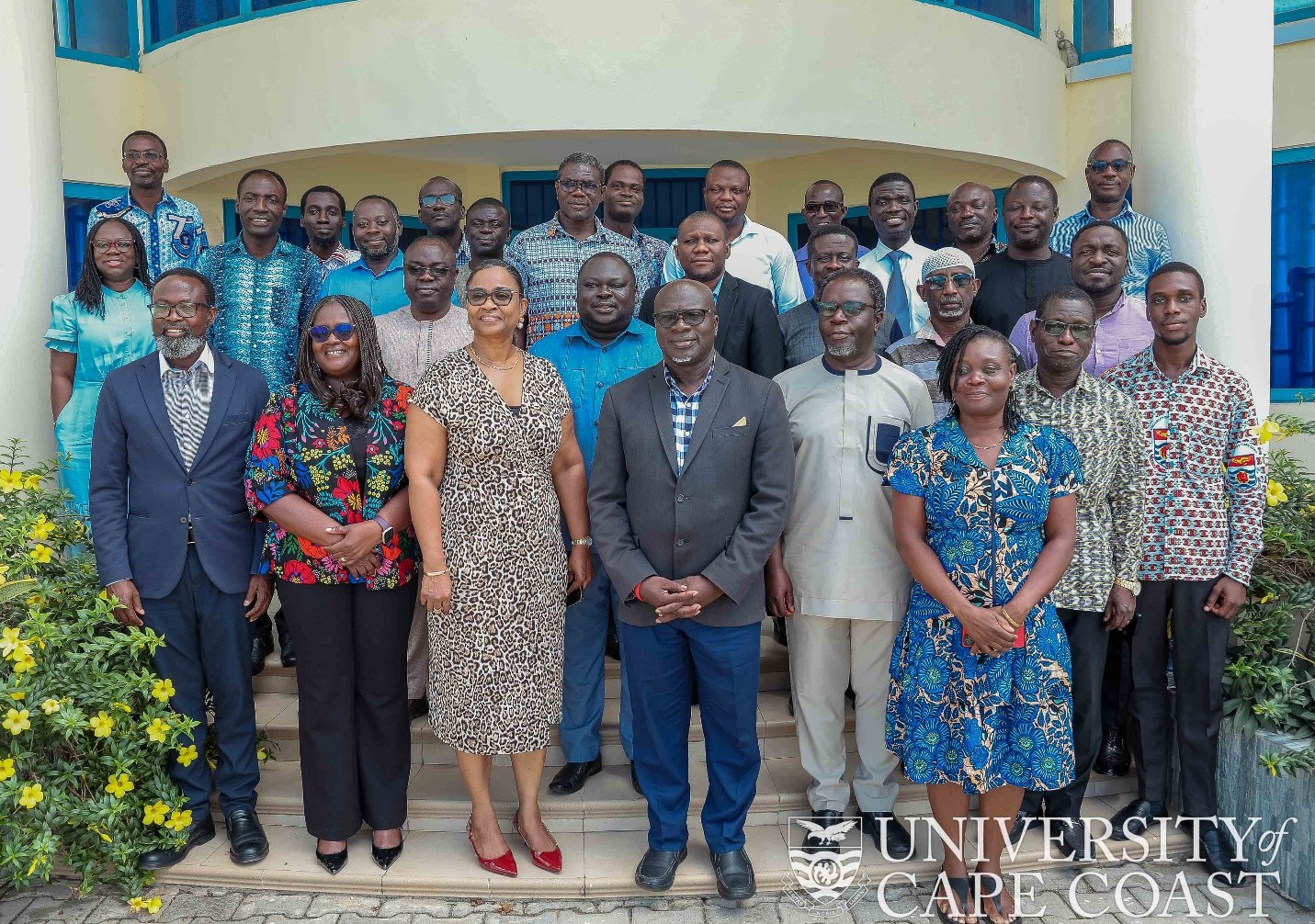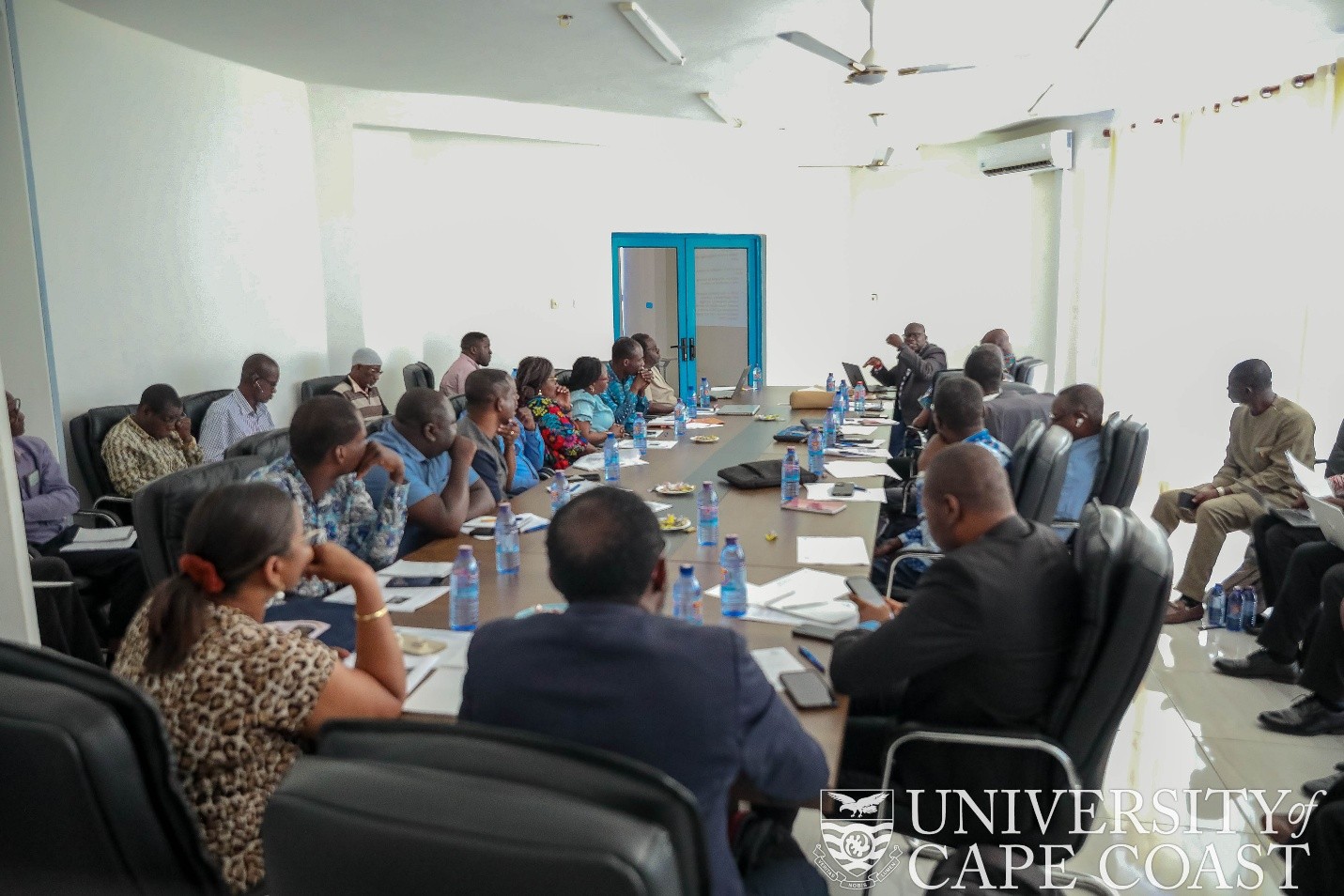The School of Medical Sciences (SMS), University of Cape Coast (UCC), has held a three-day Problem-Based Learning (PBL) training for faculty of the University of Ghana Medical School (UGMS).
The programme, which sought to strengthen learner-centered teaching methods, opened with a call to embrace innovative educational strategies tailored for 21st-century medical education.
The Dean of the School of Medical Sciences (SMS), Prof. Sebastian Eliason, presented an address on behalf of the Provost of the College of Health and Allied Sciences (CoHAS), Prof. Martins Ekor. In the address, the provost highlighted the significance of collaborative academic partnerships and stressed UCC's commitment to pedagogical excellence.
The first technical session, led by Prof. Sebastian Eliason, focused on “Innovative Teaching Practices and 21st Century Competencies.” He emphasised the need for a shift from traditional, didactic teaching models towards more learner-centred approaches.
"In today’s knowledge-driven world, it is essential that our methods evolve to reflect the demands of the 21st century,” Prof. Eliason noted. “Critical thinking, collaboration, creativity, and communication must be central to how we train future healthcare professionals,” he highlighted.
Participants during the training
Prof. Eliason further stressed the importance of equipping faculty with the tools and mindset necessary to cultivate these competencies in students.
The second session for the day was delivered by Dr. Kwabena Dankwa, a Senior Lecturer in the Department of Microbiology and Immunology and the Coordinator for Problem-Based Learning (PBL) at the SMS. He introduced participants to the concept and practice of Problem-Based Learning.
"PBL is not just a teaching method; it is a philosophy of learning that places students at the centre of the educational experience," he explained.
"At UCC School of Medical Sciences, we’ve seen significant gains in learner engagement and critical reasoning through PBL.", Dr. Dankwa noted.
Dr. Dankwa also walked participants through the PBL process as practised at UCC, encouraging adaptation and contextualisation of the method in their respective institutions.
The three-day event also featured hands-on activities and detailed explorations of the PBL methodology. Facilitators such as Prof. Patrick O.M. Maison and Prof. Samuel Acquah led sessions on the roles of students and facilitators, assessment tools, and quality assurance in PBL.
The training also included workshops on writing effective PBL scenarios facilitated by Dr. Ansumana S. Bockarie, and discussions on faculty development, digital tools, and institutional strategies for successful PBL implementation led by Prof. Emmanuel K. Achampong and others.
Source: Documentation and Information Section-UCC


